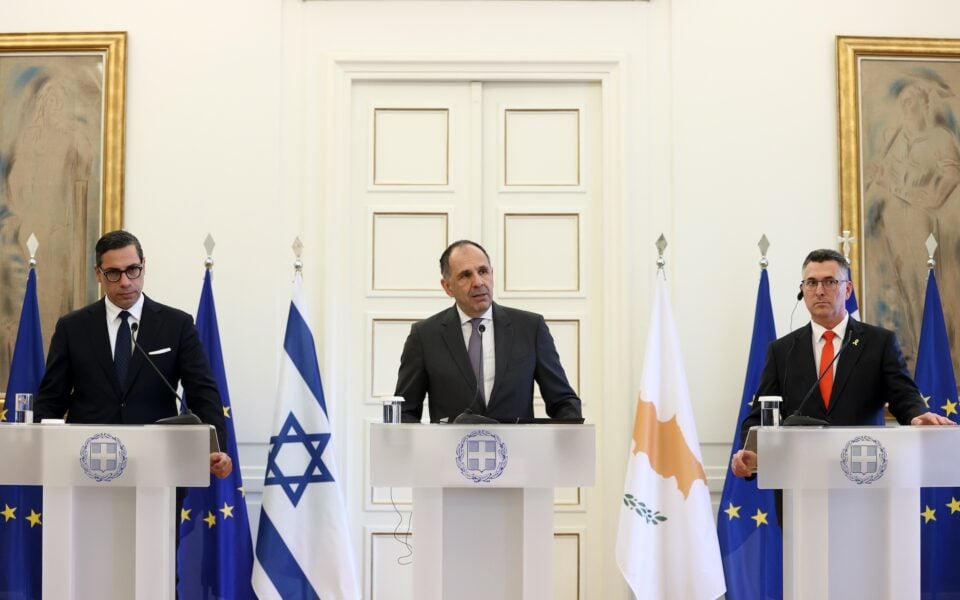
[Intime News]
The invitation from Athens, Jerusalem and Nicosia to Washington to reactivate the “3+1” mechanism – conveyed through a letter from their foreign ministers to US Secretary of State Marco Rubio – is not a bolt from the blue.
It had been under discussion among the four capitals in recent months, with the active involvement of lobbying groups in Washington. Established in 2019 during a trilateral summit in Israel with then-US secretary of state Mike Pompeo alongside leaders from the three Mediterranean states, the “3+1” format has been largely dormant in recent years. Its revival is seen as part of a broader effort to bypass Turkey in regional infrastructure and diplomatic arrangements. While some lower-level meetings have occurred – primarily focused on counterterrorism and defense – the collapse of the EastMed gas pipeline project in 2022 diminished US enthusiasm and sidelined the initiative. Ankara has consistently opposed the framework.
The letter reflects ongoing coordination between Athens, Jerusalem and Nicosia and is linked to renewed strategic interest driven by the US-backed India-Middle East-Europe Economic Corridor (IMEC) as a counterweight to China’s Belt and Road Initiative. It envisions a trade and energy corridor linking India to Europe via the Middle East, bypassing Turkey.
Cyprus and Israel view this as an opportunity to re-anchor themselves as strategic partners in the region and bolster US priorities such as the Abraham Accords – agreements that normalized relations between Israel and several Arab states. Saudi Arabia, a key regional actor, has resisted Turkish involvement in Arab affairs and maintains influence over Syria. Israel remains the most active proponent of reactivating the format, aligning with Washington’s strategic priorities in the Eastern Mediterranean and the broader Middle East.
Recent legislation, including the proposed Eastern Mediterranean Gateway Act, advocates cooperation between the US, India, Israel, Greece, Cyprus and Egypt.